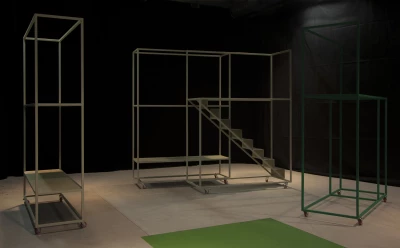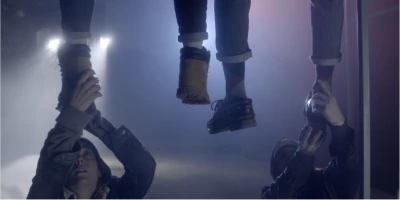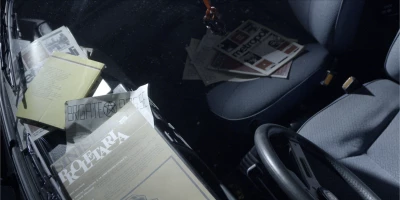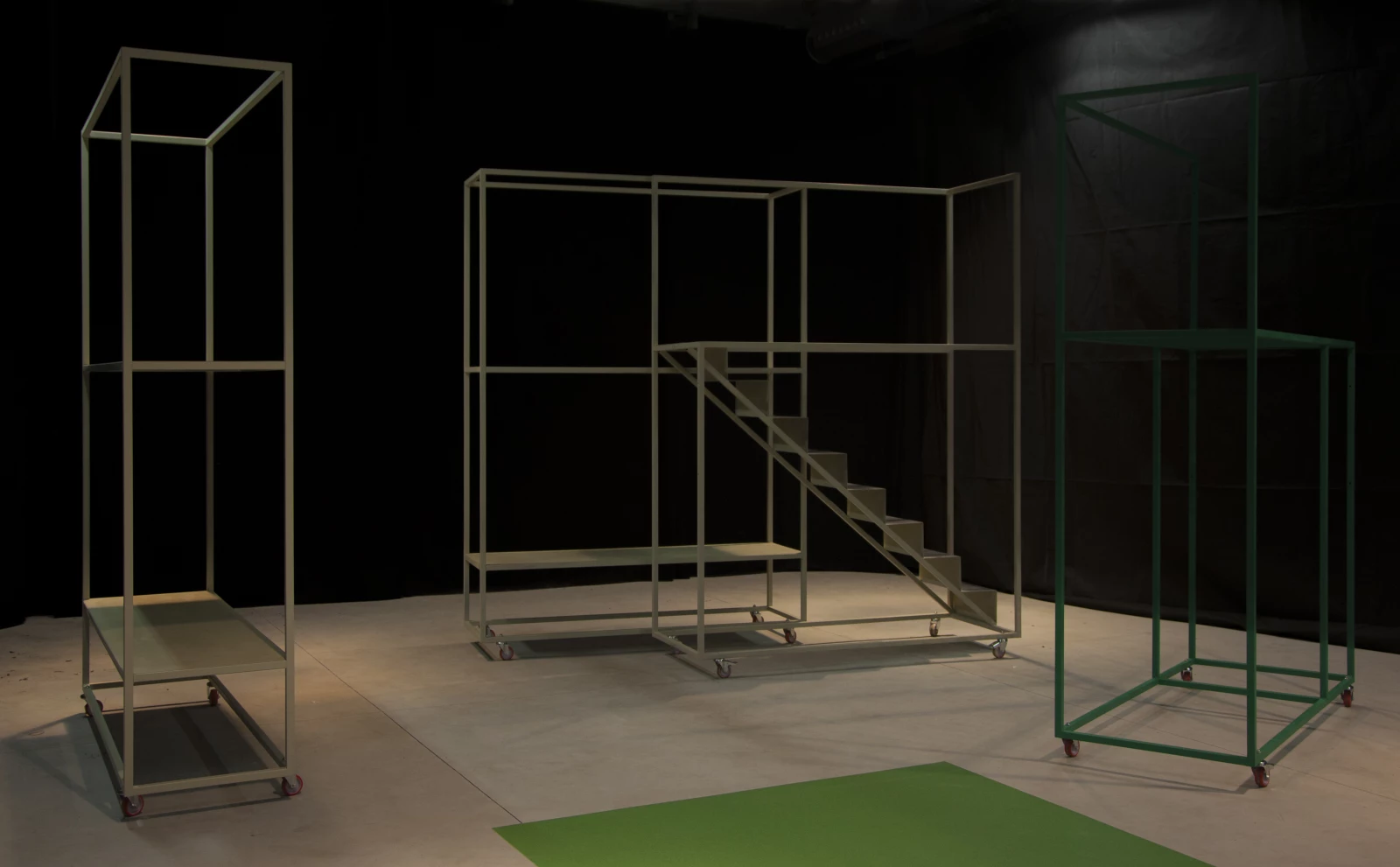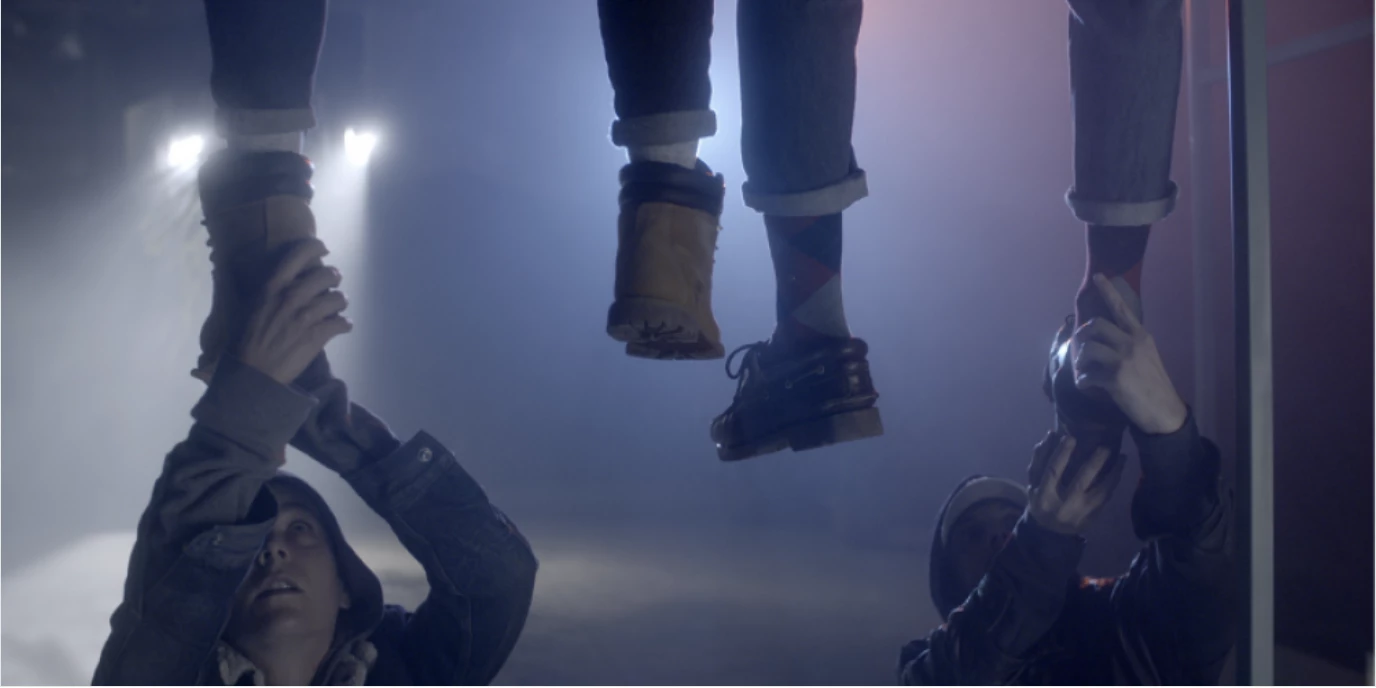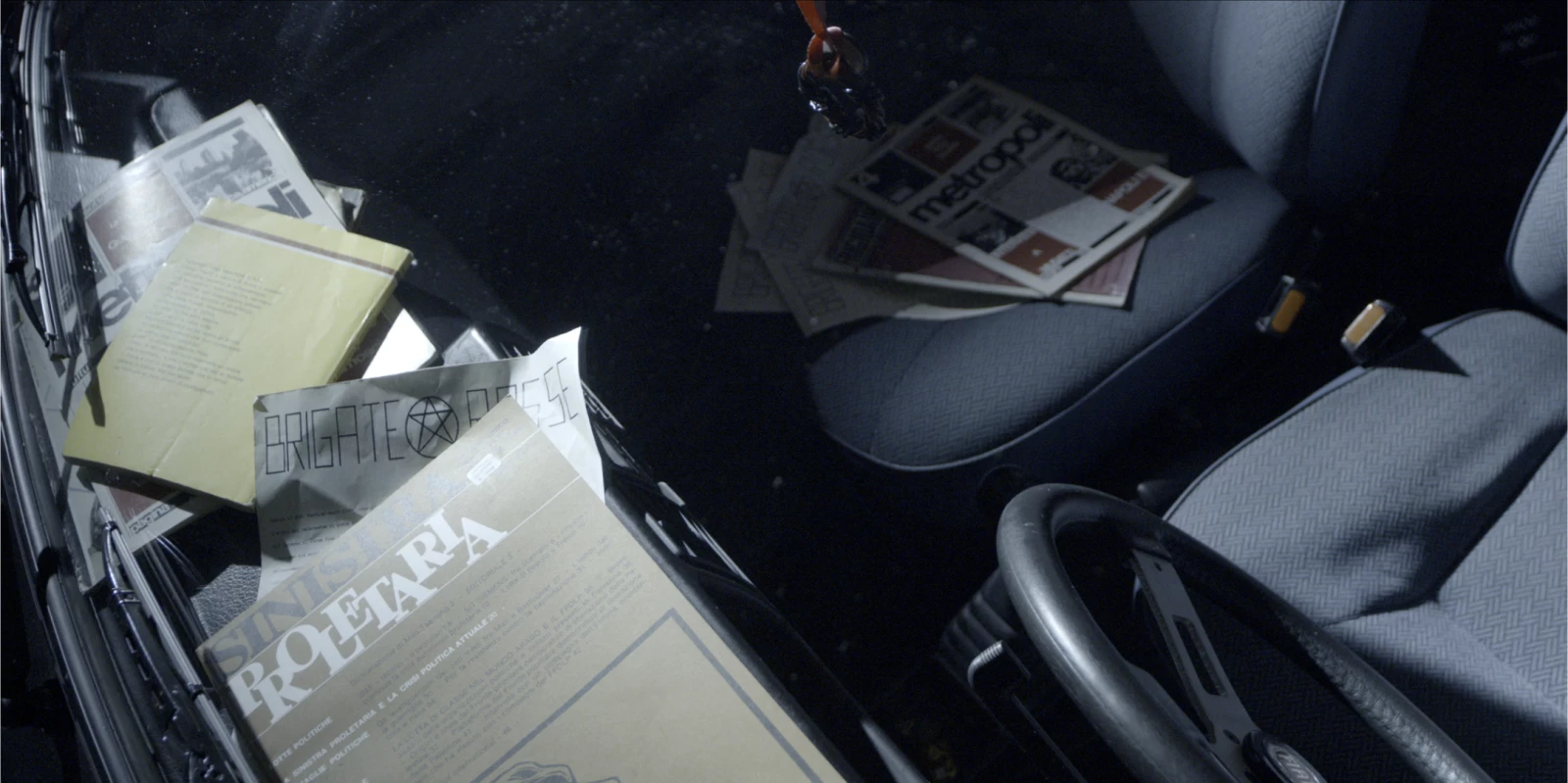Danilo Correale - Diranno che li ho uccisi io
Diranno che li ho uccisi io
33', 4K
[2018]
Directed by Danilo Correale
The film is the result of an in-depth investigation into Italian cinema from the 1950s to the 1980s, which, for various reasons, remained boxed away in archival folders in the form of screenplays, or in directors’ minds as ideas, never becoming films due to censorship.
From the birth of the Republic in 1946 and the political dominance of Democrazia Cristiana onward, Italian cinema suffered from a kind of intermittent castration. This occurred for political, religious, moral, cultural, and often economic reasons, forcing authors of undeniable prestige to compromise on style and content in order to avoid breaking the censorship laws, which, despite modifications and adjustments, have remained in effect since 1962.
“Diranno che li ho uccisi io” is a film that attempts to reconstruct fragments of this forgotten cinema, through an immersive play of lights, shadows, and camera movements. Among the various screenplays uncovered during Correale’s research and readings that fueled this desire and inquiry, themes and taboos such as European colonialism, feminism, armed struggle, resistance, class difference, and religion emerge, along with a variety of cinematic styles that inspired the creation of the film.
This film ideally connects, in a purely evocative form, six screenplays, as well as six cinematic genres and six underrepresented topics from the fall of fascism to the birth of Italian private television.
“In the period leading up to production, opposing emotions alternated—moments of euphoria and discouragement—which only an act of resistance to an increasingly uninhabitable political present could give meaning to. Hence the need to build a counter-narrative of a small yet significant history: not only that of cinema and its contribution to Italian mass culture, from post-fascism to 1984, but also of a collective cultural history that urgently needs to be deconstructed and rewritten,” writes Danilo Correale in the director’s notes accompanying the publication.
“Diranno che li ho uccisi io” was produced by the artist after winning the inaugural edition of the Italian Council (2017), a prize competition created by the Direzione Generale Arte e Architettura Contemporanee e Periferie Urbane (DGAAP) of the Ministero per i Beni e le Attività Culturali to promote contemporary Italian art worldwide. As part of the prize, the film will become part of the collection of MART – Museo d'Arte Moderna e Contemporanea di Trento e Rovereto, and in 2019, also of the exhibition space of the MAC Museum in Belfast, a project partner.
A special screening of the film will be presented at Magazzino Italian Art, in Cold Spring – New York, on November 17, 2018. “Diranno che li ho uccisi io” is also the title of the artist’s book published by Nero Edizioni (Rome), to be released in September 2019.
SYNOPSIS
“Diranno che li ho uccisi io” is a kaleidoscopic journey into the suspended life of Italian cinema that was never made or left unfinished.
A solitary archivist – Ernesto Mahieux – lives in a timeless bureaucratic space where a cascade of dormant stories awaits reconciliation with their own existence and representation. The archivist’s vivid imagination leads the visitor to experience fragments of secret stories, told through a film about Italian colonialism, a thriller about the history of the Italian terrorist group (BR), and a romantic drama on the life of Simone Weil.
The project connects not only six unrealized screenplays but also six cinematic genres and six underrepresented topics in the history of Italian cinema, from the fall of fascism to the birth of private Italian television.
BIOGRAPHY
Danilo Correale is an Italian artist and researcher living and working in New York. His work focuses on analyzing aspects of human life such as labor, leisure, and sleep in late capitalism. His projects employs a wide range of visual and collaborative strategies emphasizing kinship between time and body associated with present-time maladies such as fatigue, lethargy, boredom, and stillness.
Correale’s iconic research on Sleep, Free Time, and refusal of work represents an ever-expanding source for new artworks and special projects, therefore the body of work evolves and often adapts to specific commissions and interactions within the audience.
Danilo Correale received his MFA in Visual art and Curatorial Studies from NABA, Milano, IT, and has been awarded by a Research Affiliate Fellowship at Columbia University NY in 2017. He has been part of Skowhegan, school of painting and sculpture among many other residency and grant program in EU and USA.
His Work has been published by NERO publications (Rome), Archive Books (Berlin), FEC (Italy) and Decelerationist Reader (US).
TECHNICAL DATA SHEET
Diranno che li ho uccisi io
2018
Written and directed by Danilo Correale
Original soundtrack: Diego Buongiorno
Voice-over: Beatrice Catanzaro, Emanuele Aleotti, Francesco Venturi
Project/script: Danilo Correale
Con Ernesto Mahieux nel ruolo di Archivista, Claudio Morganti nel ruolo di Carmelo Bene, Daniele Balicco nel ruolo di se stesso, Marta Bianchi, Aurora Morelli, Ando, Clara Crescini, Francesco Napoli
Editing and postproduction: Aniello Giordano
DOP and Camera: Roberto Beani
Second Camera: Massimo Mahieux
Gaffer and lights: Simone Tacconelli
Boom operato: Francesco Amodeo
Grip: Cristian Manini, Filippo Negrello
Sound editing and Mixing: Nicola Itro
Set Designer: studio GISTO (Alessandro Mason, Matteo Giustozzi)
Research: Danilo Correale, Vasco Forconi
Script consultant: Massimo Zordan
Script Supervisor: Vasco Forconi
Set photographer: Mauro Baldacci
Service: Moovie
Recording studios: SAE Institute Milano, Show Biz
Production: Careof
Curator and head of production: Martina Angelotti
Coordination and technical service: Marta Bianchi
Logistics and set up: Lia Manzella
Organization and cast: Aurora Morelli
Logistics assistant: Maria Peschiera
Co-production: MAC Museo d’arte contemporanea di Belfast
Acquisizione in collezione: MART - Museo d’Arte Moderna e Contemporanea di Trento Rovereto
Il film ha tratto ispirazione da sceneggiature e racconti di autori
quali Dario Argento, Carmelo Bene, Claudio Caligari, Liliana Cavani,
J.P Sartre - Sergio Spina e Augusto Tretti.
